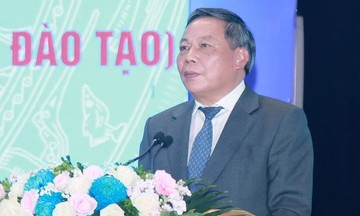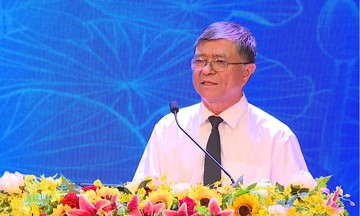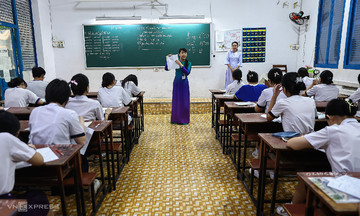This observation was made during the program "Career Wave 5.0: Adapt - Change - Breakthrough," organized by VnExpress Newspaper in collaboration with FPT University. This program is part of the "Prompt Your Future" series, a career orientation program for students, parents, and high schoolers seeking solutions to choosing a major and career in the digital age.
The discussion featured three speakers: Doctor Tran Ngoc Tuan, Vice President of FPT University; Pham Thi Ngoc Thuy, Executive Director of the Private Economic Development Research Board (Ban IV); and Nguyen Tien Huy, CEO of Pencil Group and author of the book "No One Can Stop AI." The speakers painted a comprehensive picture of the profound changes in the AI era, from its impact on professions and national policies to how schools train human resources and the psychology of parents and students facing constant change.
Challenges and opportunities as AI creates new career waves
Nguyen Tien Huy opened the program by stating that AI technology not only automates many jobs but also changes the entire operational process of businesses. This poses a challenge for every individual and organization: adapt or be left behind.
Pham Thi Ngoc Thuy cited research from the World Economic Forum (WEF), showing that the world has three stages of development and is entering the third stage – economic growth based on innovation and new technologies. She assessed that Vietnam is currently in the "between 2 and 2.5" stage of the development cycle, which includes both traditional industries and new technology sectors like fintech, AI, and semiconductors.
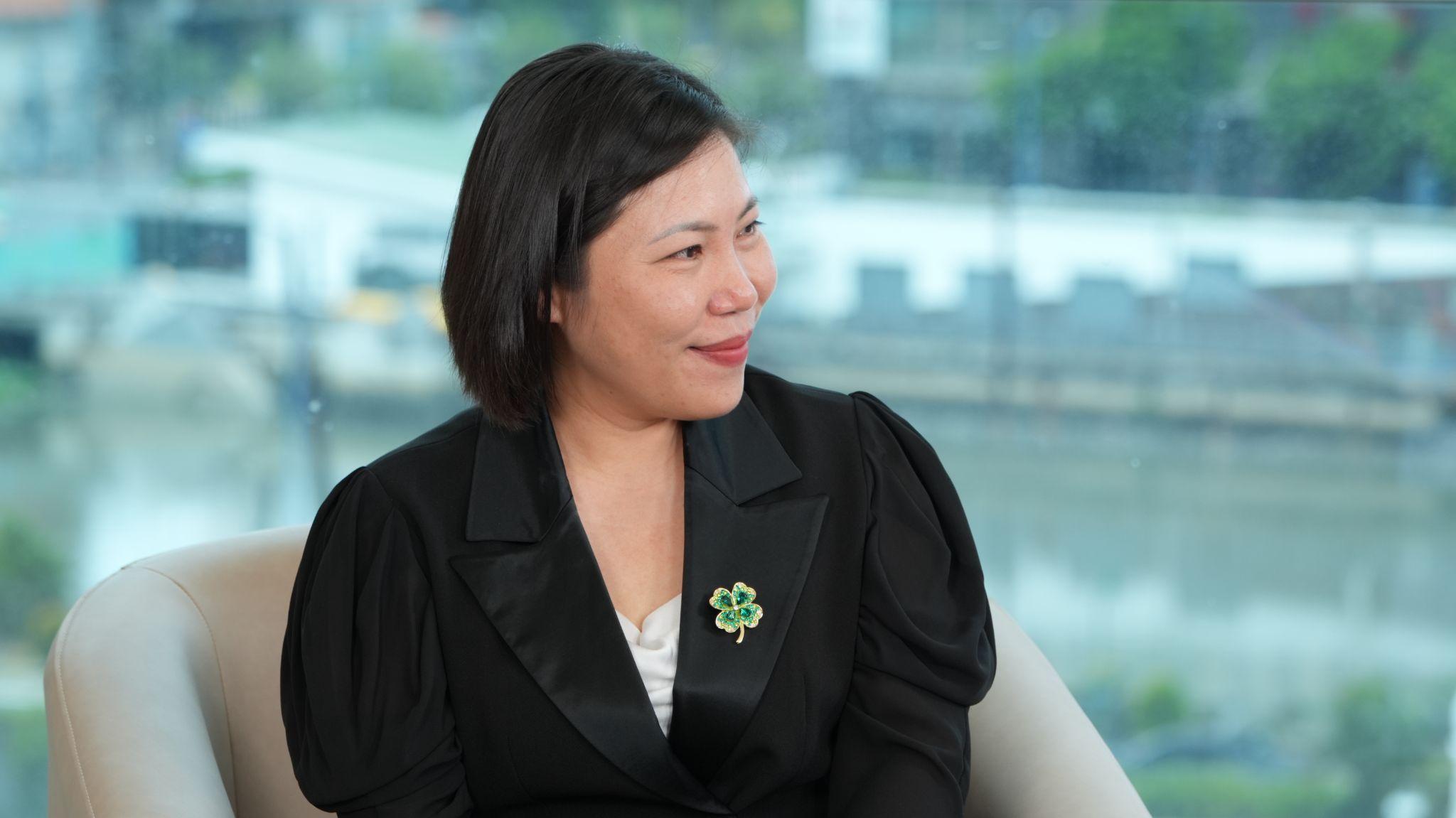 |
Pham Thi Ngoc Thuy, Executive Director of the Private Economic Development Research Board (Ban IV), at the seminar. Photo: FPTU |
Pham Thi Ngoc Thuy, Executive Director of the Private Economic Development Research Board (Ban IV), at the seminar. Photo: FPTU
She also mentioned Resolutions 57 and 68 of the Party and Government as important policy milestones: identifying private enterprises as the central driving force of economic development and setting the goal of building a national innovation ecosystem. According to Thuy, this is the first time new technology, innovative start-ups, and digital transformation have been mentioned as crucial components of national policy in these resolutions.
This opens up a new policy space where the ability to innovate and apply technology is no longer exclusive to technology companies but a general requirement for the entire labor market. In this context, Thuy emphasized that the younger generation will be the core force in realizing digital transformation goals. Those who can ask the right questions, grasp the logic of data, interact with technology, and express their individuality are highly valued in this new development phase.
Innovation mindset from higher education
From an educator's perspective, Doctor Tran Ngoc Tuan emphasized the significant responsibility placed on universities amidst the rapid development of AI. "The pressure on educators is immense now," he stressed. "AI is changing so fast that schools must constantly update to avoid falling behind."
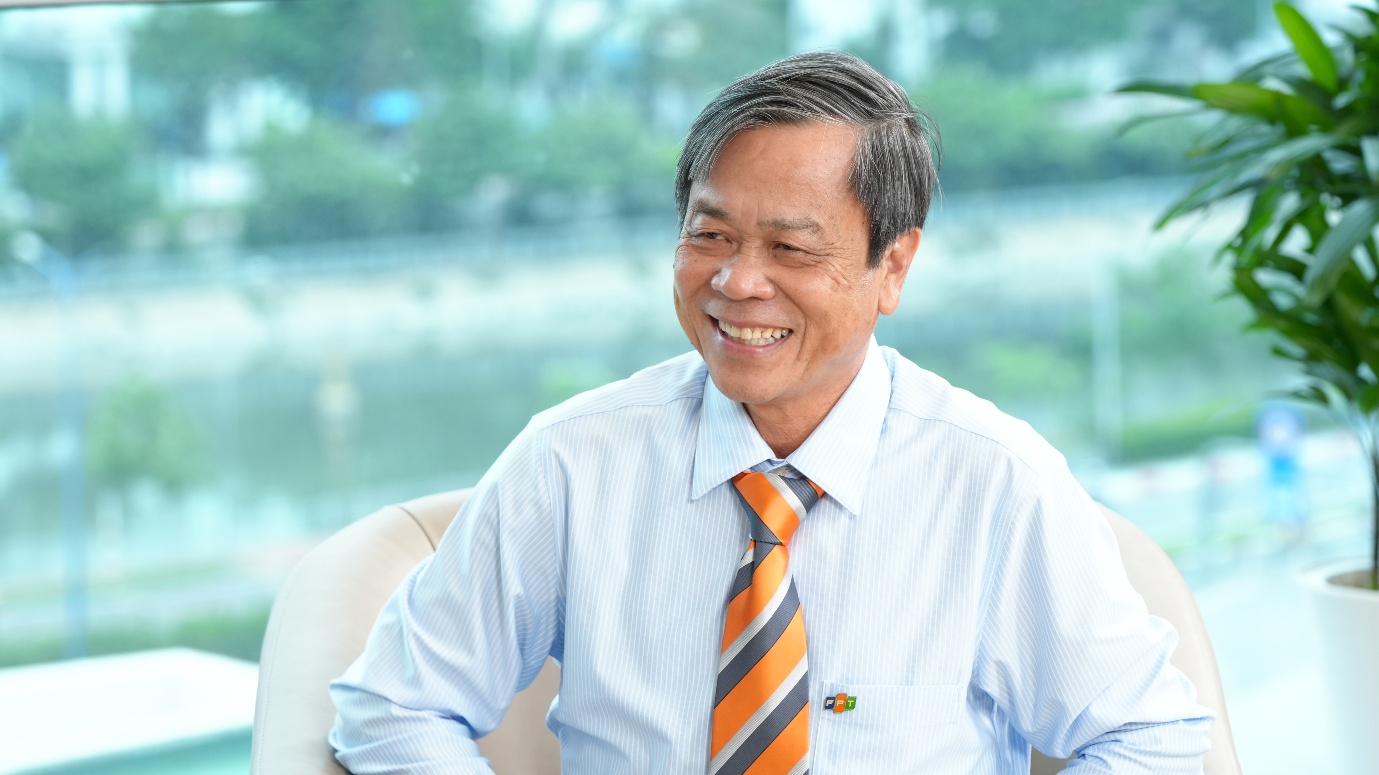 |
Doctor Tran Ngoc Tuan, Vice President of FPT University, shared the responsibility of educational institutions. Photo: FPTU |
Doctor Tran Ngoc Tuan, Vice President of FPT University, shared the responsibility of educational institutions. Photo: FPTU
At FPT University, starting in the 2025-2026 academic year, all 24 training majors will integrate AI tools into their curricula. First-year students have a mandatory AI First course, providing a foundation in technology, ethics, copyright, and critical thinking in the context of AI applications. This initial step helps students not only understand the tool but also use AI responsibly and effectively in both learning and life. Students at lower levels in the FPT education system are also introduced to AI through experiential activities and integrated lessons.
In addition, FPT University teaches with a deep practical approach. Students have the opportunity to participate in an 8-12 month On the Job Training program at businesses. From the 7th semester, students take three start-up courses and can turn their ideas into real businesses with capital support from the university.
"The entrepreneurial spirit is the core of innovation, creating real-world pressure, which helps students mature much more than just learning theory," added the Vice President of FPT University.
The university also utilizes top global courses on the Coursera platform, integrating AI as a mentor for students. According to Doctor Tuan, this model allows for flexible learning, personalized learning paths, and prepares students to meet business needs in the AI environment.
Thuy praised FPT University's flexible and proactive approach to innovation. This is further demonstrated by the university's participation in Alliance 57, a joint initiative between businesses and training institutions to train "57 engineers" to directly serve innovative, technological, and digitally transformative industries.
Overcoming confusion to find individual value
As a parent, Thuy shared a personal story about her daughter, who is passionate about Digital Art and was once very confident in this choice. However, when AI could generate images with just a few lines of code, she was deeply shaken. "We used to think that field was stable, then suddenly we saw AI doing it so quickly and well," she said.
Following advice from experts like Truong Gia Binh (Chairman of FPT Corporation), Thuy reoriented her approach. Instead of avoiding it, she encouraged parents to let their children access AI as early as possible. This allows young people to identify their personal values that cannot be replaced by machines.
According to Doctor Tuan, this is also a common problem for Gen Z, who have access to many tools and information but can easily lose direction without fundamental guidance. "Many students who invest too deeply in old skills will find it difficult to change. It's important to understand that learning doesn't end after university; it's lifelong learning," he said.
For high school students, what matters is not achievement but fundamental skills like critical thinking, teamwork, and project-based learning. These skills cannot be replaced by AI and are the starting point for developing individual identity in the technological world.
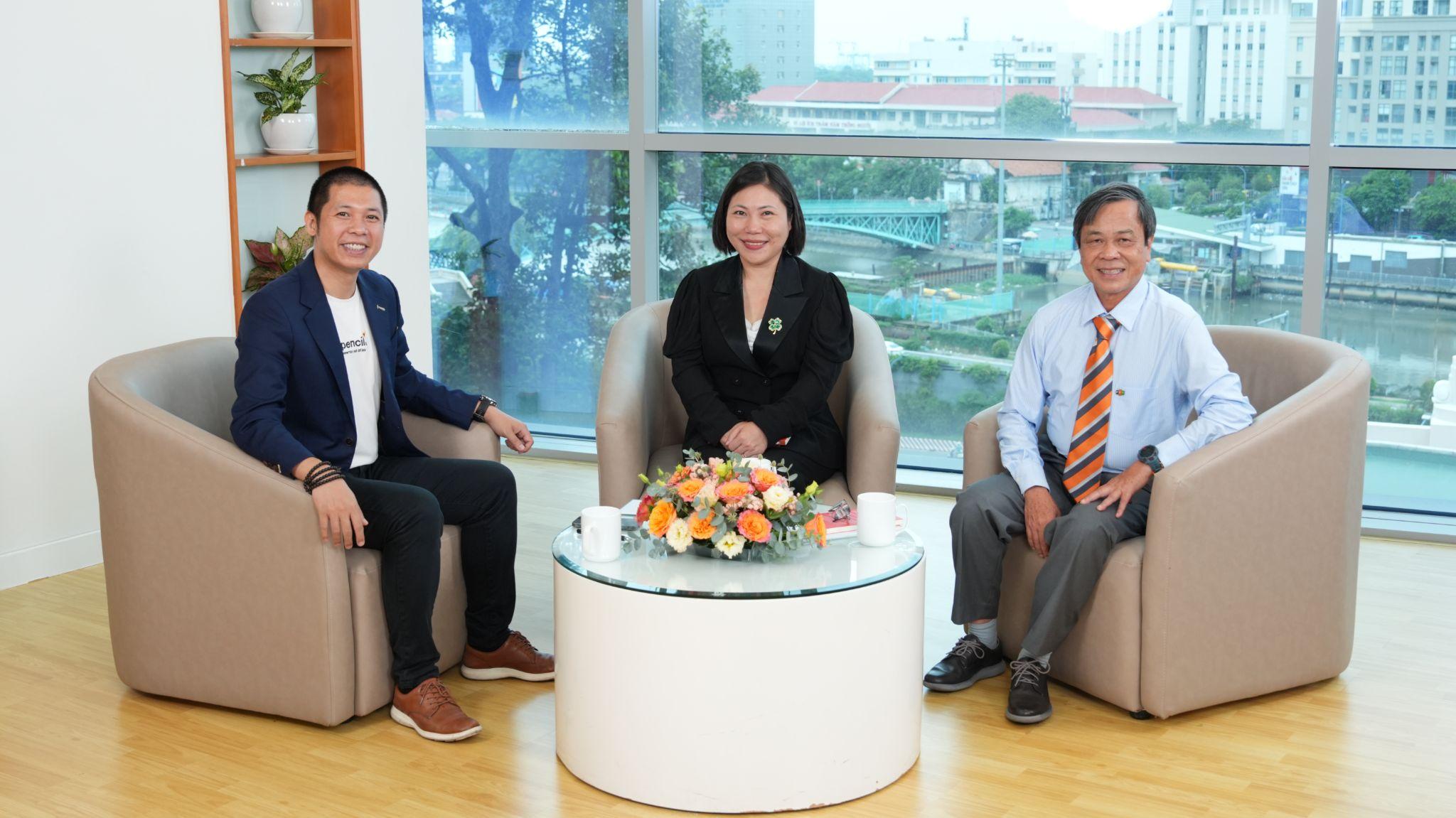 |
Guests at the seminar. Photo: FPTU |
Guests at the seminar. Photo: FPTU
At the end of the program, the guests agreed that AI is not a destination but a tool. In the age of AI, the most important thing is not who uses the tools best, but who retains their unique value when everything can be created with a single command.
Simultaneously, AI is changing professions daily, even hourly, so to prepare for future careers, the question "which field is hot" is no longer relevant for students and parents today. Instead, learners should focus on what to learn and why to learn it to adapt no matter how the world changes.
Nhat Le



